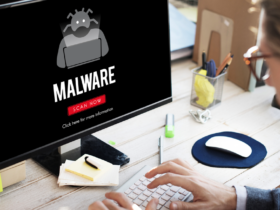No matter how big your company is, it is probably at risk of becoming a victim of a cyber attack more than you could imagine. Hackers are always finding new ways to breach security walls and they target everyone.
They have attacked and will attack small, medium-sized, and big companies across many industries.
However, just because they put in a lot of effort and often succeed doesn’t mean that you can’t or shouldn’t fight back.
Quite the opposite, you should do everything in your power to prevent any kind of attack. And, you can do that by reading and learning about important security tips. When you know all the details about implementing them, you will be able to create a secure, hack-proof website that will leave hackers confused.
Once you finish reading this article, you will see how much you can benefit from the implementation of these cybersecurity tips.
Perform a security audit
Performing a security audit should be one of the first things you need to do when it comes to the ‘fortification’ of your business.
With a comprehensive audit, you will be able to monitor activities that could potentially harm your website. This will, in turn, prepare you for common and annoying issues that can show up all of a sudden.
For instance, if you are running an online store on a WordPress website, you could help yourself and perform a WordPress security audit with the help of many available plugins. There are a number of security plugins that can help you run an audit and discover the weak points a cybercriminal could use to breach your ‘firewall’ and harm your business.
Once you check everything, you will be able to see exactly who, when, and how they accessed your website. What’s even better, you will be able to terminate sessions and eliminate threats.
Reduce the attack surface
You probably haven’t heard of this tactic anywhere before. Let’s just put it like this for a start – contain, log, monitor.
In order to have a solid, hack-proof website, you need to contain and grow the directory of known, unknown, and suspected assets. This is the only way to investigate all the vulnerable points of your website.
This is called attack surface reduction and it starts with real-time attack surface monitoring. In order to prevent unwanted things from happening, you need to spot them and make necessary changes before they actually become a full-fledged attack.
If you are a vendor, you will have to track your assets over time in order to manage inventory, investigate third-party vendors, and spot phishing and spoofing attempts.
Fortunately enough, there are great software solutions that allow you to keep a close eye on everything concerning your business.
These software gems allow people to log and keep an eye on assets (logged data), explore aspects of online public footprint, monitor all data sources, and even tag the assets for geo breakdown, relevancy, and so on.
Use security plugins
Since we have already touched upon security plugins, it’s time to delve deeper into the matter.
Let’s say that you have used WordPress to build your business’s website. You have a nice-looking website and your company is starting to earn some money. But, did you know that almost 90% of cyber attacks in 2018 happened on WordPress?
Imagine all that hard work flushed down the toilet because you didn’t take the time to install a good security plugin or two.
Protect your sensitive data from hackers with good security plugins. On top of that, with a decent security plugin, you will never lose access to your website. These are just some of the benefits of installing and using WordPress security plugins.
Multi-factor authentication
Authentication – the process you need to go through to access your website on a phone, computer, and so on. It is an act of confirming a user’s identity, which is done by providing credentials against an existing database of authorized identities before allowing access to a device or system.
For example, this process happens every time you log into your Facebook account or email account. You need to type in your username/email address and password.
However, instead of relying on passwords only, you should look for multiple factors for the authentication process. Passwords have become a bit unreliable recently.
So, what you could do is add a security question or a fingerprint scan as this could really solidify your cybersecurity.
Monitor personal devices
You don’t have to provide mobile phones, laptops, and other devices if your business is still in its starting phases. That can be quite an expense.
However, you could try to monitor personal devices that access your business website every day. Your employees and even you probably use personal devices to access your company’s data.
This is what often happens across numerous industries and businesses. So, if this is the case with your business too, you need to come up with policies that allow your network administrators to install monitoring software, push automatic security updates, and request regular password changes.
There is no need to unnecessarily invade anyone’s personal privacy. But you need to protect your business if your employees are putting the whole network and website at risk due to the careless use of personal devices.
Devise a security breach response strategy

Image by Free-Photos from Pixabay
A security breach strategy will let your business stay ahead of an attack. And even one step ahead, in this case, can mean a world of difference.
After all, one can never be completely certain that security measures that are implemented will repel all kinds of attacks, right?
So, it may be wise if you devised a plan in case you became a victim of a cyber attack. This breach response strategy will allow you to respond quickly enough to keep hackers away from getting some serious data that could cause a complete breakdown for you.
You will have enough time to alert everyone, including your customers if things get out of hand. This way, your customers will have a chance to take some security measures themselves to keep their credit cards and other sensitive issues safe.
If you have too many responsibilities yourself, have someone from your team handle everything regarding this breach response strategy. As your company starts growing more and more, you may need a few tech experts to handle this kind of strategy and the whole security plan.
Create a quick response guideline
You don’t only need to have a security breach response strategy to follow in case something bad happens. You need to introduce this concept to each member of your organization, too.
Devise a quick response guideline in the case of cyber attacks and communicate it to the rest of your organization. Then have someone make sure that the simulation of the plan you devised for your employees is carried out every now and then.
You don’t want your employees to roam in the dark if a breach happens. Sometimes it’s enough for someone to respond too slowly to make things go from bad to worse in a matter of a few seconds.
Wrapping Up
Those were some of the essential strategies for keeping your business safe from cybercrime. We live in a dangerous world, and this holds true for the internet as well.
Make sure you have a set strategy to counter cyberattacks and follow it on a regular basis. This should be enough to give you some peace of mind.
Image by Elias Sch. from Pixabay











Leave a Reply